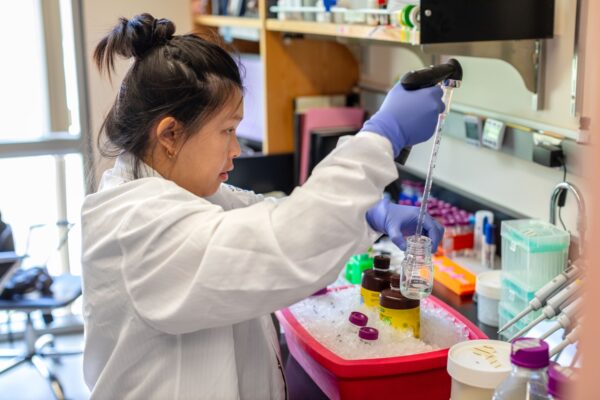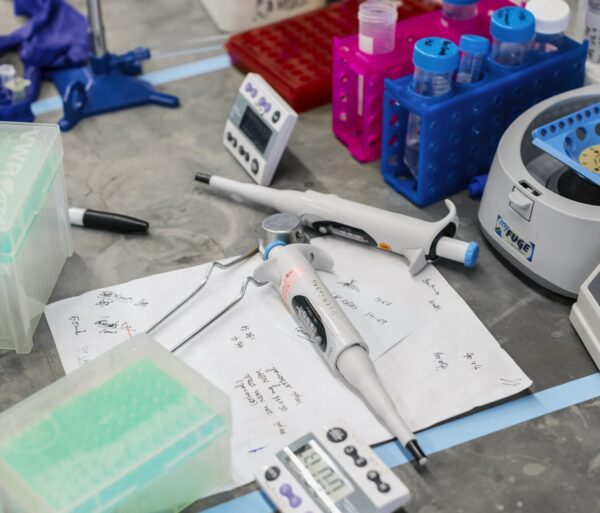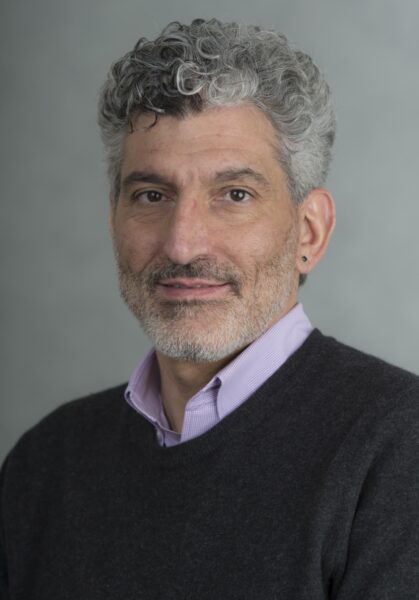
The brain has long been viewed as the body’s control center because it integrates information from each body system and directs the appropriate responses. Emerging evidence suggests that the trillions of bacteria living in the human gut may strongly influence brain activity and that these interactions play a pivotal role in brain health and disease.
“Microbes have the remarkable capacity to modulate brain activity and behavior, which suggests that elucidating the interactions between microbes and the nervous system will provide new insights into brain development and function, and potentially uncover strategies for treating complex nervous system disorders,” said Elaine Hsiao, Ph.D., assistant professor at the University of California-Los Angeles Departments of Integrative Biology & Physiology and Microbiology, Immunology & Molecular Genetics.
Dr. Hsiao was awarded a BRF Fay/Frank Seed Grant that has enabled her team to begin to systematically test how various gut microbes communicate with specific types of brain cells called neurons.
“We are trying to decode how different types of gut microbes signal to neurons and the different types of messages that are being relayed to the brain to influence behavior,” she explained.
The grant also helped the team build the tools necessary for such an ambitious investigation. This included creating a system that enabled them to record electrical signals from living brain cells in animals whose guts have been infused with different bacteria or molecules produced by gut bacteria. They’ve also established an imaging method to watch brain cells firing in real-time using fluorescent light.
“We hope that learning more about how microbes and neurons communicate with one another will reveal new molecular targets for developing better treatments for neurological diseases,” she said.
Dr. Hsiao’s interest in the intersection between the gut microbiome and the brain was piqued by her graduate studies on the interaction between the immune system and the nervous system in autism spectrum disorders. That led her to appreciate how vital the microbiome is to normal immune function, metabolism, gut health, and nervous system function.
“I’ve always been intrigued by connections between the brain and the body, especially since so many neurological diseases include symptoms outside of the brain,” Dr. Hsiao said. For example, inflammatory bowel disorder is highly co-occurring with Parkinson’s disease, and often precedes its diagnosis by decades, leading researchers to study whether intestinal disturbances can contribute to its development.
Research in Dr. Hsiao’s lab now spans the fields of neuroscience, immunology, and the emerging field of gut microbiota research. She and her team use a wide range of techniques including brain imaging and genetic sequencing in their investigations.
“I love multidisciplinary research because it merges the very different perspectives, approaches and cultures of different disciplines,” she explained. “I think this is important for studying nature, which has no separate fields or boundaries.”
Like many of the researchers BRF elects to fund, Dr. Hsiao’s work has the potential to transform our understanding of the brain and nervous system, which may have implications for many brain diseases. She and her team have already published studies exploring the role of the microbiome in autism spectrum disorders, seizures, psychiatric conditions, movement disorders, addiction, and brain development.
“At the root of all of our studies are really fundamental questions about how different systems, like the microbiome, immune system and nervous system, interact with each other,” Dr. Hsiao said. “We hope that the principles that emerge from these basic questions will apply to brain and body interactions across a wide range of neurological disorders.”




